Just In
- 2 hrs ago

- 4 hrs ago

- 4 hrs ago

- 4 hrs ago

Don't Miss
- Movies
 Jackie Shroff's Heartfelt Plea To Keep India's Strays Cool in the Heatwave Is Something You Can’t Miss
Jackie Shroff's Heartfelt Plea To Keep India's Strays Cool in the Heatwave Is Something You Can’t Miss - News
 PM Slams Cong On Pitroda's 'Inheritance Tax' Remark Says Its 'Dangerous Intentions' Coming To Fore
PM Slams Cong On Pitroda's 'Inheritance Tax' Remark Says Its 'Dangerous Intentions' Coming To Fore - Automobiles
 2024 Kia Carens Secures 3-Star Adult & 5-Star Child Safety Ratings – Detailed Look
2024 Kia Carens Secures 3-Star Adult & 5-Star Child Safety Ratings – Detailed Look - Technology
 Gigabyte Unveils AORUS CO49DQ: A Curved QD-OLED Gaming Monitor for Immersive Entertainment
Gigabyte Unveils AORUS CO49DQ: A Curved QD-OLED Gaming Monitor for Immersive Entertainment - Education
 Maharashtra Class 10th Result 2024 to be Released Soon; Check Minimum Marks Required to Qualify Maharashtra SS
Maharashtra Class 10th Result 2024 to be Released Soon; Check Minimum Marks Required to Qualify Maharashtra SS - Finance
 1:10 Split, 5 Bonus, 70% Dividend: Crorepati Defene PSU Hits New High, 108605% Returns; BUY For Long Term
1:10 Split, 5 Bonus, 70% Dividend: Crorepati Defene PSU Hits New High, 108605% Returns; BUY For Long Term - Sports
 DC vs GT My11Circle Prediction IPL 2024 Match 40: DEL vs GUJ Fantasy Tips & Expert Picks
DC vs GT My11Circle Prediction IPL 2024 Match 40: DEL vs GUJ Fantasy Tips & Expert Picks - Travel
 Mumbai Opens BMC Headquarters For Exclusive Heritage Tour
Mumbai Opens BMC Headquarters For Exclusive Heritage Tour
COVID-19: WHO Hand Sanitiser Formula Can Disable Coronavirus, Study Finds
One of the most 'needed' things currently after protection masks, hand sanitisers are the next best thing to regularly washing your hands with soap. Due to the increased demand and lack of supply of hand sanitisers, spotting one at your regular medical shop or even at a supermarket can be quite difficult now.
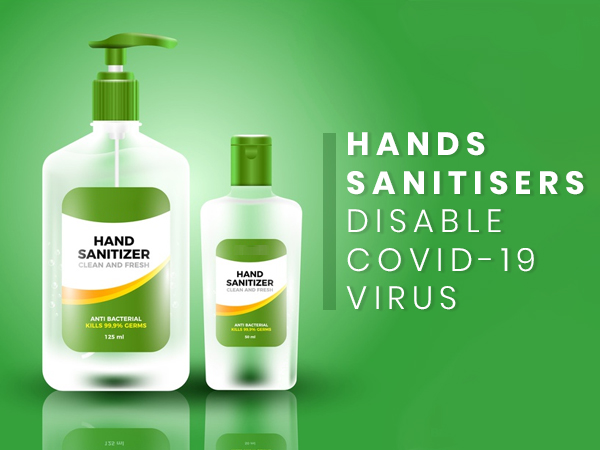
Amidst the shortage, prominent health organisations such as WHO and CDC had come forward with hand santiser recipes, that can help prevent the spread of the coronavirus infection [1][2].
And, a recent study published in the journal Emerging Infectious Diseases has confirmed that two hand sanitizer formulations recommended by the World Health Organization (WHO) are effective in disabling the virus that causes coronavirus disease [3].

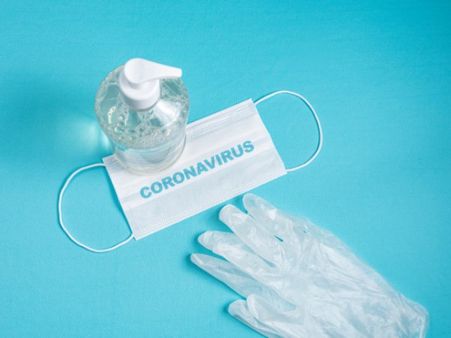
Hand Hygiene Is Critical In Preventing Virus Spread
Currently, there are no vaccines or drugs to prevent coronavirus disease. The best and single most important way to prevent the spread of SARS-CoV-2 is hand hygiene [4]. Washing your hands with soap and water for 20 seconds is the best and most effective form of protection, however, this may not be practical at all times, especially for healthcare workers [5].
Various studies have pointed out that alcohol-based hand sanitisers can provide a quick, simple substitute for handwashing. But, there have been doubts about the effectiveness of hand sanitizers against the COVID-19 virus [6][7].
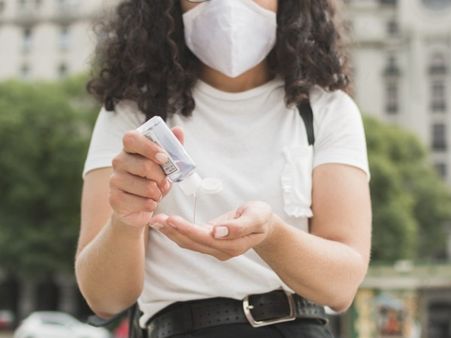
WHO Recommended Hand Sanitisers Inactivate COVID-19 Virus
The recent study explored the effectiveness of alcohol-based hand sanitisers against the coronavirus and have reached at the conclusion that WHO-recommended formulations can sufficiently inactivate the virus after 30 seconds [8].
WHO recommends two alcohol-based sanitiser formulations, which generally, can help prevent the spread of pathogens. The first kind of sanitiser tested by the researchers were comprised of ethanol (80%), glycerine or glycerol( 1.45%) and hydrogen peroxide(0.125%). The second type of sanitiser is comprised of isopropanol or isopropyl alcohol (75%), glycerine (1.45%) and hydrogen peroxide (0.125%) [9].

The researchers exposed the coronavirus particles in the lab cultures to each formulation for 30 seconds and found that both formulations had inactivated the virus.
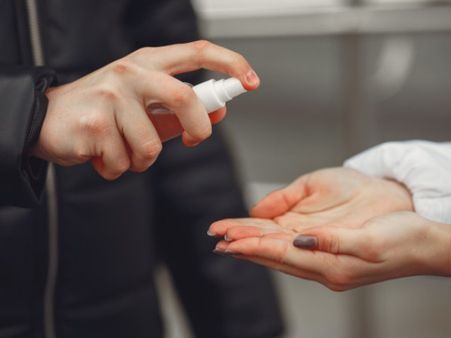
What Did The Result Suggest?
The active ingredients in both the formulations, ethanol or isopropanol were tested individually and it was understood that at a concentration of at least 30 per cent, the ingredients can inactivate SARS-CoV-2 - the coronavirus.
The hand sanitisers sold in medical shops typically have an alcohol concentration of around 60 per cent, thereby pointing out that it can indeed help inactivate the virus [10]. However, homemade hand sanitisers made without the necessary skills, and medical-grade ingredients may not be effective in inactivating the coronavirus [11].
The researchers also added that the study findings have given a go signal for pharmacies and hospitals to make their own sanitisers by following the WHO formulations.
Note: Inactivating the virus is not the same as that of removing the virus. And, the study exposed the virus for a time span of 30 seconds. Viral removal is a method in which all viruses are simply removed from the sample and viral inactivation is where the viruses may remain in the final product, but in a non-infective form [12].
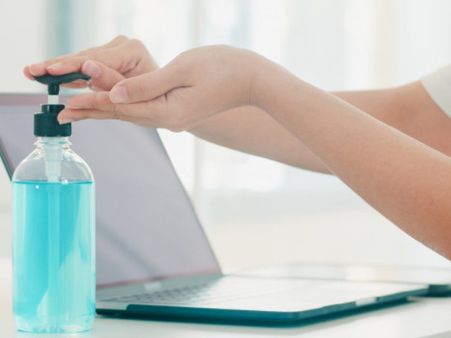
On A Final Note…
The researchers concluded that the study results are based on the sanitiser being in contact with the virus for at least 30 seconds and this may not be the case always. It was also added that vodka is unsuitable for making hand sanitiser as it is not the right grade of alcohol.
-
 disorders cureIndia May See A Covid Surge In January, Next 40 Days Crucial; Here Is How To Protect Yourself From COVID-19
disorders cureIndia May See A Covid Surge In January, Next 40 Days Crucial; Here Is How To Protect Yourself From COVID-19 -
 disorders cureCOVID Can Trigger Parkinson's Disease: Study
disorders cureCOVID Can Trigger Parkinson's Disease: Study -
 disorders cureCommon COVID Symptoms In Fully Vaccinated Individuals: What You Should Know
disorders cureCommon COVID Symptoms In Fully Vaccinated Individuals: What You Should Know -
 wellnessMild COVID Linked To Life-Threatening Blood Clots, Increased Risk Of Cardiovascular Disease; Study
wellnessMild COVID Linked To Life-Threatening Blood Clots, Increased Risk Of Cardiovascular Disease; Study -
 wellnessCOVID-19 Variants In India: New COVID Variant May Pose Threat To Elderly People
wellnessCOVID-19 Variants In India: New COVID Variant May Pose Threat To Elderly People -
 basicsCovid-19 Linked To Early Onset Of Periods: What You Need To Know
basicsCovid-19 Linked To Early Onset Of Periods: What You Need To Know -
 wellnessCOVID XBB Variants Of Omicron In India: What You Should Know
wellnessCOVID XBB Variants Of Omicron In India: What You Should Know -
 disorders cureNew Omicron Subvariant BQ.1 Detected In Maharashtra: What You Should Know
disorders cureNew Omicron Subvariant BQ.1 Detected In Maharashtra: What You Should Know -
 disorders cureOmicron BF.7 In India, Risk Of Fresh Wave During Diwali: What You Should Know
disorders cureOmicron BF.7 In India, Risk Of Fresh Wave During Diwali: What You Should Know -
 womenPriyanka Chopra Speaks On Climate Change, COVID, Poverty At The UN Sustainable Development Goals 2022 Moment
womenPriyanka Chopra Speaks On Climate Change, COVID, Poverty At The UN Sustainable Development Goals 2022 Moment -
 wellnessCoronavirus Residues Might Be Causing Long COVID: New Study
wellnessCoronavirus Residues Might Be Causing Long COVID: New Study -
 art cultureRenowned Spanish Author Javier Marias Passes Away Due To Lung Infection Post COVID-19
art cultureRenowned Spanish Author Javier Marias Passes Away Due To Lung Infection Post COVID-19


 Click it and Unblock the Notifications
Click it and Unblock the Notifications



